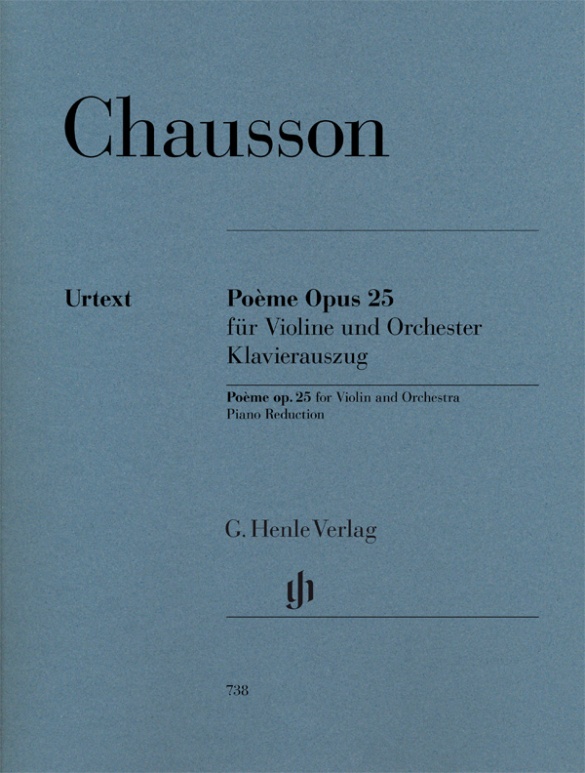

Ernest Chausson
Poème pour violon et orchestre op. 25
Ernest Chaussons «Poème» pour violon et orchestre, initialement conçu comme poème symphonique se référant à une nouvelle de l’écrivain russe Ivan Tourgueniev, a évolué de plus en plus par la suite pour devenir un morceau de caractère de style concertant, «un morceau, selon Chausson, écrit dans une forme très libre, avec de nombreux passages où le violon [joue] seul». La popularité toujours croissante du «Poème» prouve à quel point Chausson a réussi en ce sens. La partie soliste de l’édition Henle répond aux critères les plus stricts de l’édition critique. Quant à la réduction pour piano, l’accent a été mis sur la bonne «jouabilité», si bien que l’accompagnement s’exécute encore plus facilement.
CONTENU/DÉTAILS
(Explanation)
Exclusively in the Henle Library APP
Doigté de: Ernst Schliephake
CONCERNANT LE COMPOSITEUR
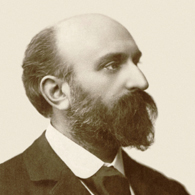
Ernest Chausson
Compositeur français. Ses compositions se situent d’un point de vue stylistique à la transition vers l’impressionnisme. Il écrivit de nombreuses mélodies, des œuvres pour la scène, de la musique de chambre ainsi que des œuvres vocales et orchestrales.
| 1855 | Né le 20 janvier à Paris, il reçoit une formation artistique complète (musique, littérature et art) auprès de Léon Brethous-Lafargue. |
| vers 1865 | Il a pour professeur de piano Cornélius Coster. |
| à partir de 1874 | Il se produit dans le salon de Madame Berthe de Rayssac et est introduit dans des cercles artistiques. |
| 1877 | Après avoir terminé ses études de droit il obtient le 7 mai un engagement à la Cour d’Appel de Paris. |
| 1878 | Il prend des leçons privées chez Jules Massenet. |
| 1880 | Au conservatoire il entre dans la classe de composition de Jules Massenet et est auditeur libre chez César Franck. |
| 1882 | Il assiste à Bayreuth à une représentation de Parsifal de Richard Wagner qui lui laissera un souvenir inoubliable. C’est là qu’il rencontre Vincent d’Indy, Ernest Guiraud, Camille Saint-Saëns et d’autres. |
| à partir de 1886 | Il est secrétaire de la Société Nationale de Musique à Paris. |
| à partir de 1890 | Son salon parisien est fréquenté par les élites du monde de la musique, de la peinture et de la littérature parmi lesquels Stéphane Mallarmé, Colette, Pierre-Auguste Renoir, Édouard Manet, César Franck, Claude Debussy, Paul Dukas, Charles-Marie Widor, Maurice Ravel, Eugène Ysaÿe, Henri Duparc et Raoul Pugno. |
| 1899 | Il meurt le 10 juin à Limay à la suite d’un accident de bicyclette. |
About the Authors
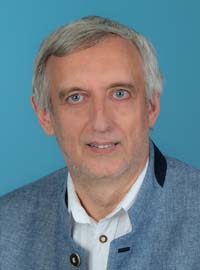
Peter Jost (Editeur)
Dr. Peter Jost, born in 1960 in Diefflen/Saar, read musicology, German and comparative studies at Saarland University in Saarbrücken. He did his PhD in 1988 with a thesis on Robert Schumann’s Waldszenen.
From November 1991 to April 2009 he was a research associate at the Richard Wagner Complete Edition in Munich, and since May 2009 has been an editor at G. Henle Publishers. His Urtext editions comprise predominantly French music of the 19th and 20th centuries, including works by Lalo, Saint-Saëns and Ravel.
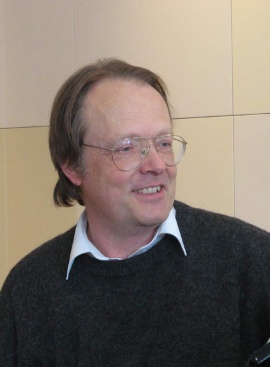
Johannes Umbreit (Réduction pour piano)
Prof. Johannes Umbreit studied the piano at the Musikhochschule in Munich. From 1987 onwards he was a regular accompanist at courses given by Wolfgang Schneiderhan, Thomas Brandis, Ljerko Spiller, Igor Ozim, Olga Woitowa, Ernő Sebestyén, Walter Nothas, F. Andrejevsky, Denis Zsigmondy and Zakhar Bron amongst others. He has appeared in numerous radio and TV broadcasts and plays chamber music with members of the Bavarian State Orchestra, the Munich Philharmonic Orchestra and the Bavarian Radio Symphony Orchestra.
He is on the jury of different international competitions and has been invited to several international music festivals. Umbreit was a teacher for almost ten years at the Musikhochschule in Munich and at the same time a lecturer for chamber music and piano accompaniment at the Richard Strauss Conservatory. Since 2008 he has been a lecturer at the Hochschule für Musik und Theater München. As the long-serving managing director of the Richard-Strauss-Gesellschaft, he was made an honorary member of the board in 2009. In May 2011, the Bavarian Minister of Culture appointed Johannes Umbreit an honorary professor of the Hochschule für Musik und Theater München on the suggestion of its academic senate.
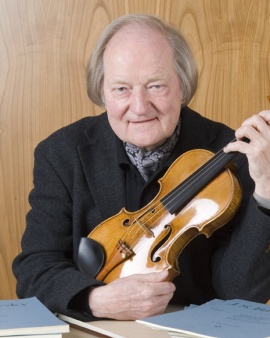
Kurt Guntner (Doigtés violon)
Prof. Kurt Guntner was born in Munich on Mozart’s 183rd birthday. He studied the violin with Ludwig Ackermann, Max Rostal and Henryk Szeryng. At the age of 18, he made his solo debut in the Kongreßsaal at the German Museum in Munich, performing Beethoven’s Violin Concerto with the Munich Philharmonic Orchestra. At the age of 22 he was appointed first concertmaster with the Bavarian State Orchestra. After 10 eventful years at the Bavarian State Opera with conductors such as Ferenc Fricsay, Joseph Keilberth and Hans Knappertsbusch, Rudolf Kempe invited him to become the first concertmaster with the Munich Philharmonic Orchestra, giving him the opportunity to perform the violin solo in many of the great violin concertos.
Of particular appeal were the BR’s invitations to perform and record great violin concertos that were seldom played, including those by Casella, Schillings, Szymanowsky. Kurt Eichhorn initiated this series– Jan Koetsier, Marek Janowski and others conducted other concertos. Kurt Guntner was also first concertmaster with the Bayreuth Festival Orchestra for many years, and played with the Munich Bach Orchestra under Karl Richter, in the Association of Soloists in The Bach Week in Ansbach and with the Münchner Bachsolisten. In 1972 he founded the internationally acclaimed ODEON-TRIO, together with the cellist Angelica May and the pianist Leonard Hokanson, touring all over the world with them for 25 years. In 1976 Guntner was called to the tenured chair of violin at Munich’s Hochschule für Musik und Theater, teaching students from around the world for 28 years.
He made numerous recordings for radio, television, record and CD. Karl Schumann described Guntner’s broad musical personality thus: “Kurt Guntner is a practical orchestral musician, soloist, chamber musician and educator in one person”.
In 1997 Kurt Guntner was awarded the order of merit (first class) of the Federal Republic of Germany.
Kurt Guntner died on 9 January 2015 in Munich.
He was closely associated with G. Henle Publishers for several decades. Since the end of the 1980s he had produced numerous Urtext editions of works for violin for the publishing house, sharing pedagogically polished bowings and fingerings for different works including violin concertos by Bach, Haydn, Mozart, Bruch and Tchaikovsky, as well as numerous other editions.
Informations sur la sécurité du produit

G. Henle Verlag
Vous trouverez ici des informations sur le fabricant du produit.G. Henle Verlag e.K.
Forstenrieder Allee 122
81476 München
Allemagne
info@henle.de
www.henle.com
recommandations
autogenerated_cross_selling
Autres éditions de ce titre
Autres éditions de ce titre


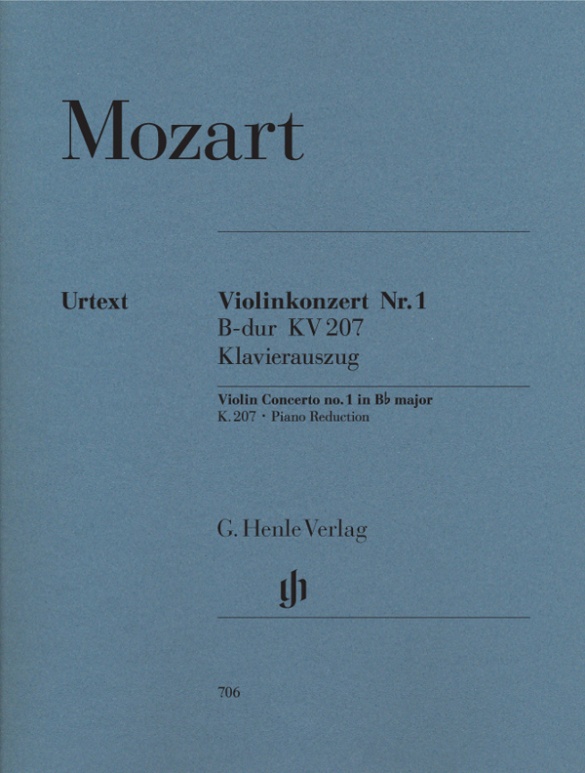

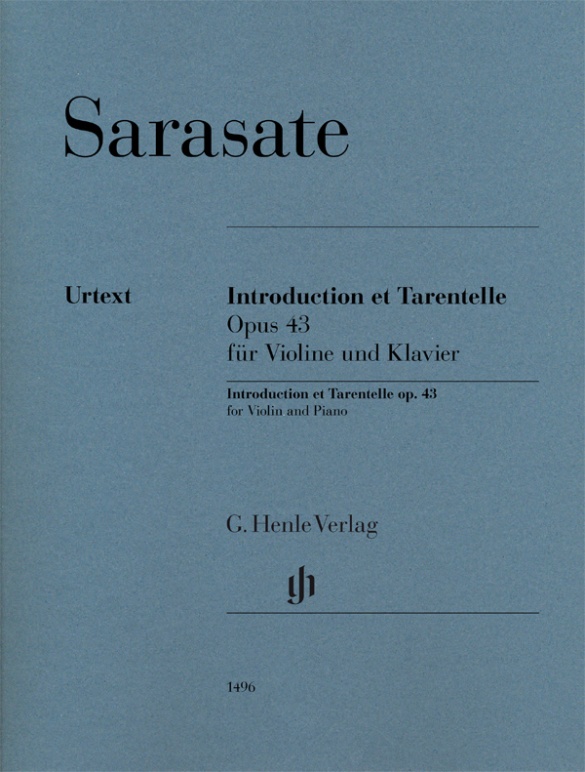
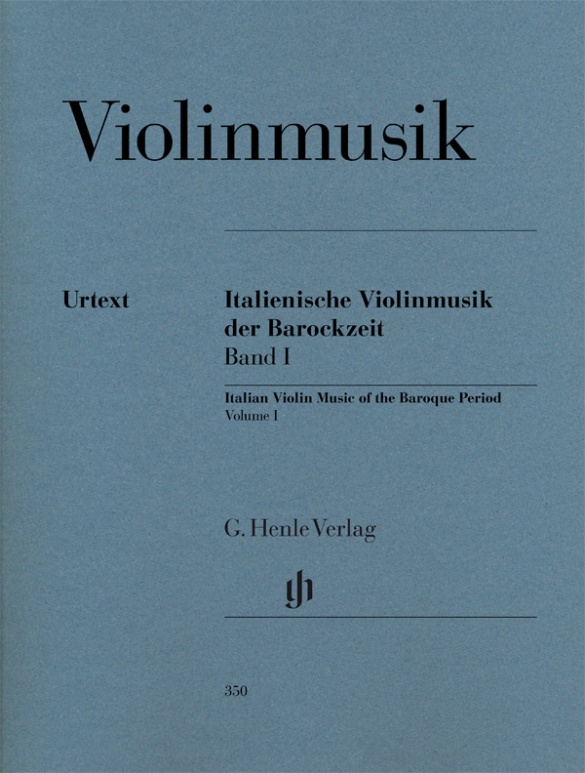
parties avec ou sans indications de doigté